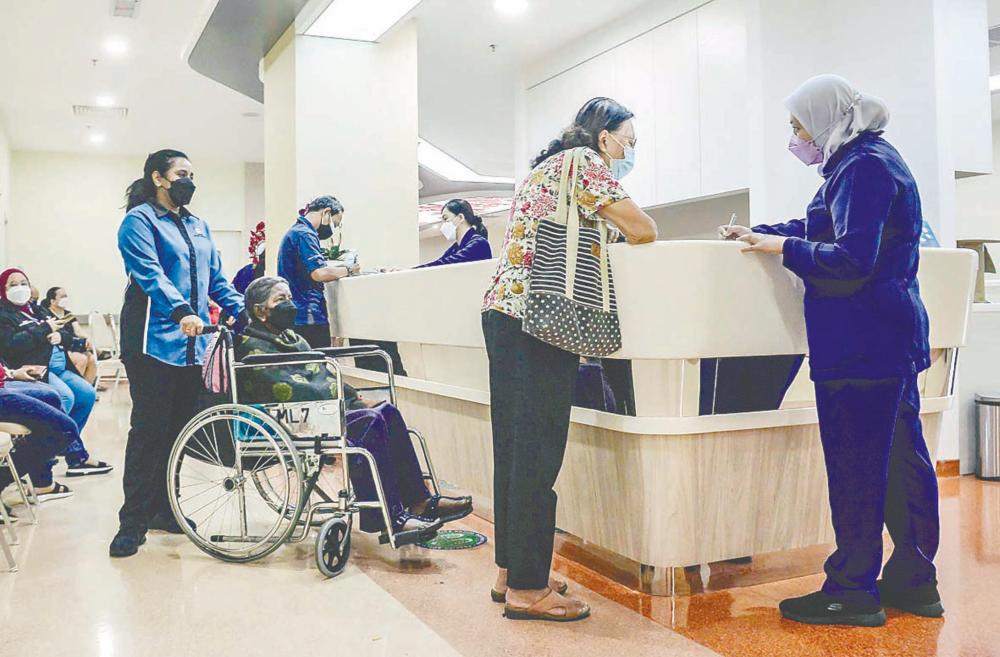PETALING JAYA: In light of International Universal Health Coverage Day yesterday, health experts have called on the government to implement a national health insurance scheme.
While the Peka B40 scheme was initiated to sustain the healthcare needs of low-income groups, it only focuses on non-communicable diseases, with eligibility reserved for those registered under the Rahmah Cash Contribution scheme and their spouses aged 40 and above.
A Parliamentary Special Select Committee on Health made six suggestions for the government to address the increasing prices of insurance and takaful premiums.
Its chairman Suhaizan Kaiat said it suggested co-payment options, a mechanism to control the prices of health services, and facilitating the application of diagnosis-related groups.
Universiti Kebangsaan Malaysia public health medicine specialist Prof Dr Sharifa Ezat Wan Puteh said a national health insurance scheme could operate on monthly salary deductions, much like the Employees Provident Fund.
“Low-income groups could be subsidised while middle and higher income groups contribute a larger but affordable amount to it. High income earners may opt for supplementary private insurance. Such a system would integrate social responsibility with tax based funding and employer contributions.”
She said the approach would address Malaysia’s growing healthcare challenges and secure a healthier future for all citizens, allowing patients to access public and private healthcare providers using an eligibility card.
She added that the government has improved healthcare access, particularly in rural areas, through initiatives such as hospital clusters, enhancing primary care and increasing the number of doctors in underserved populations.
Despite these advancements, there are barriers to achieving universal health coverage and a key challenge is the financial burden faced by patients, particularly for specialised treatments such as mental health care.
“Mental health providers are concentrated in urban areas and private facilities, making it difficult for underserved populations to access such care,” she said, while calling for better integration of preventive care in the healthcare system to address such gaps.
She said the increasing cost of private healthcare providers limits accessibility for many, resulting in overcrowding in public facilities.
“This is another reason the government should implement a national health insurance scheme as it would reduce waiting times and improve access to healthcare.”
Galen Centre for Health and Social Policy CEO Azrul Mohd Khalib said there is a need to adopt a stronger healthcare financing model to ensure access for all.
“There is no one-size-fits-all solution for healthcare financing but a way forward is through a national health insurance scheme with strong social elements.”
He said the scheme would involve mandatory contributions to a national fund to support health and aged care to complement but not replace the current health budget allocations.
He also said to address the challenges of rising healthcare costs and increasing demand, critical areas must be reformed, namely sustainable healthcare financing, preventive health to reduce disease burden and aged care.
He said valuable lessons could be drawn from other countries to improve the healthcare system.
“Our leaders should take a pragmatic approach and make tough decisions now to prevent a worsening situation in the future.”









